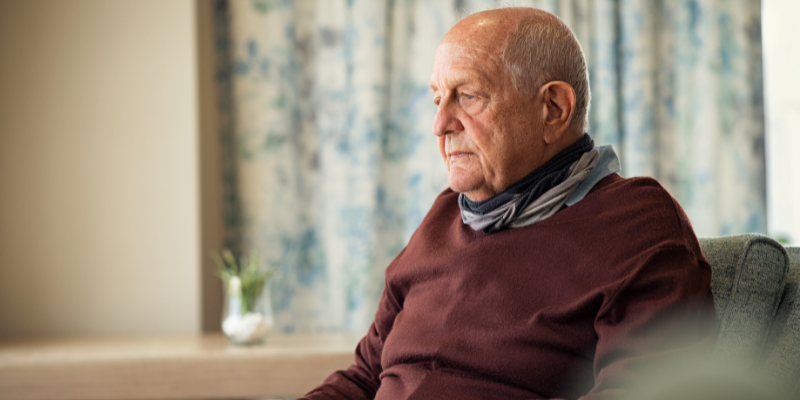Humans are social by nature; we need other people. Science has proven unequivocally that we are happier but more importantly, healthier when we connect with others. One of the most prevalent, and least discussed health risks that older adults face is loneliness. According to the CDC (Centers for Disease Control) social isolation significantly increased a person's risk of premature death from all causes, a risk that may rival those of smoking, obesity, and physical inactivity. Social isolation was associated with about a 50% percent increased risk of dementia.
Living alone isn’t bad, and by the course of natural events, many of us live very happy fulfilling lives by ourselves. Loneliness or emotional isolation, however, is a condition that can occur after the loss of a spouse, adult children or close friends move away or an illness reduces one’s opportunities for socialization and participation in normal activities. Many seniors worry about being a burden to others, or avoid going out in public after an injury or a change in physical appearance or capacities. The other significant isolating barrier can be the loss of one’s driver’s license and the many challenges associated with public transportation (or the lack thereof).
The numbers and the concerns
According to Pew Research, 27% of people in the U.S. aged 60+ live alone, a number likely to rise as the Baby Boom generation ages.
Isolation becomes a problem when it’s prolonged and there is a complete or highly reduced rate of outside human connection. The consequences can cause depression, dementia and cognitive disorders, high blood pressure and even malnutrition and can produce a higher risk of mortality. It is hypothesized that seniors living alone may not address health issues in a timely manner which may result in missed diagnoses and more serious- or even fatal- health issues.
Seeing the Red Flags
As most seniors will not reach out for help, it’s important that friends, family members, neighbors and health care providers to recognize the signs and symptoms of loneliness.
Here are the most common red flags:
- Changes in sleep patterns
- Obvious feelings of sadness or even despair
- Self-induced isolation – not taking phone calls or invitations to go outside the home
- Loss of interest in hobbies or any “normal” activity
- Change in hygiene habits
- Obvious change in weight – loss or gain
- New and/or unexplained aches and pains
How to help and reduce the effects of isolation and loneliness in our elderly
The obvious “cure” is to surround them with people – in many cases it’s as simple and sometimes as hard as that. Some may resist an invitation to go out, volunteer, meet with friends and at that point it may be time to have the discussion about moving to a senior living residence, so they are gently nudged not to be alone.
At a senior community like Noble Horizons older adults avoid the isolation and loneliness and instead encounter a lifestyle rooted in a holistic approach to living. For instance, Noble Horizons’ 6 Pillars of living: Heal, Nourish, Create, Connect, Move & Live provide a thriving community of connection through which seniors can find meaning and purpose as well as physical and emotional health. They can make friends, engage in new activities or old favorites, enjoy free outings and no-cost transportation, be served three nutritious meals daily, find exercise mentors, participate in daily cultural and educational programs, and many other opportunities to fortify their well-being.

